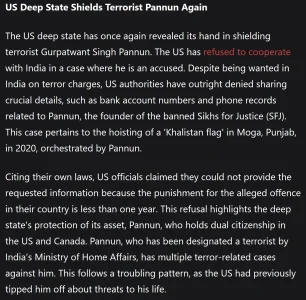Trump’s Few Jobs for the First Month
(This article deals with Foreign Affairs only)
Like it or not, the world is in turmoil, and much of the blame can be placed on President Biden and his administration. It was Biden who set the stage for the Ukraine war. With the U.S. and Russia preoccupied, the Arab world erupted in Gaza, leading to retaliatory strikes by Israel. Then came Iran, a non-Arab state, inserting itself into the Arab-Israeli conflict—a move that nearly cost it its nuclear facilities.
Meanwhile, as the West was entangled in Europe and the Middle East, China sought to expand its influence in the South China Sea. Unable to make significant progress on Taiwan, they turned their focus to the weaker Philippines, aiming to assert control over maritime territories. It was American power that ultimately restrained China from taking decisive action. Yet, these cascading events underline the primary responsibility of the U.S. in fueling global instability.
Why has the past four years seen such widespread chaos? The answer lies within the American “Deep State”—key actors in the U.S. bureaucracy and influence-driven think tanks together with military cum industrial complex which will gain financially. They viewed the President as politically weak and incapable of decisive action, so they pursued their own agendas under the guise of acting in his name. Much of the advice given to Biden pushed for actions that a more independent-minded leader in the Oval Office would likely have rejected. However, a dependent and manipulable President was easily swayed, paving the way for this global unrest.
Why is the return of Trump to the Oval Office and his new cabinet significant? Because it signals a potential end to the influence of the actors who have shaped the current turmoil and ushers in a shift in thinking.
In Ukraine, the war has already claimed countless lives and devastated the country. While the Ukrainian people desperately want peace, their voices are drowned out by the adulation showered on their wartime president. Trump’s first priority should be to end the fighting and bring the warring parties to the negotiating table. If European powers cannot guarantee peace, a skilled mediator must step in. The suffering of Ukrainians, exploited in the name of weakening Russia, must be brought to an end.
The Middle East remains a deeply complex issue, with entrenched conflicts rooted in demands for Palestinian statehood. Gazans and southern Lebanese civilians have endured immense suffering, but a solution is impossible without halting external support. While the Arab world has wealth, it lacks the vision to resolve these crises, often fueling hatred and armed conflict instead. Once the Arabs reach a solution, non-Arab actors like Iran can be excluded. Though Trump’s return has slowed the violence, his firm leadership is needed to keep warmongers at bay.
As for China, the issue lies in the West’s overdependence on Chinese imports, which has allowed China to amass wealth and build a formidable military. However, this military is used more for intimidation than actual conflict. Trump’s plan to tax Chinese imports would curb their economic power and send a clear warning to abandon their territorial ambitions. Unlike others, Trump’s strong stance makes him the right leader to stand up to China.
Elsewhere like Bangladesh or Syria, it is advisable for U.S. to stay out of the conflict. Rather, it should advise outside actors also to stay out.




